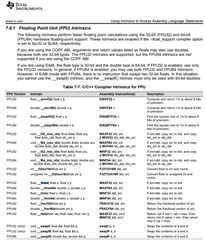Other Parts Discussed in Thread: C2000WARE
Hello,
I am getting following error during debugging my code.
It happens after couple of seconds after enabling ePwm1 interrupt. Meantime the interrupt is invoked multiple times. So far, I have found out that such an error happens only when some global variables, which are calculated inside of ISR are set to 0 by default.
Whenever I set variables to different value I get a bit different error. The MCU ends in Iterrput_defaultHandler function. It is evident the code went through _system_post_cinit() before.
Inside vectID variable is value 0x1F which means that MCU tried to invoke user interrupt 12 but it hasn'ţ defined an ISR vector. In fact, I am not trying to invoke this type of interrupt in my code.
Could you please help me how to resolve this issue?
Is it possible that the MCU is somehow damaged? I have uploaded the same code to another control card and it worked without any issue.
What is stored at location 0x3FB02A? Is there any specific ROM function?
Thanks for reply.
Jozef


